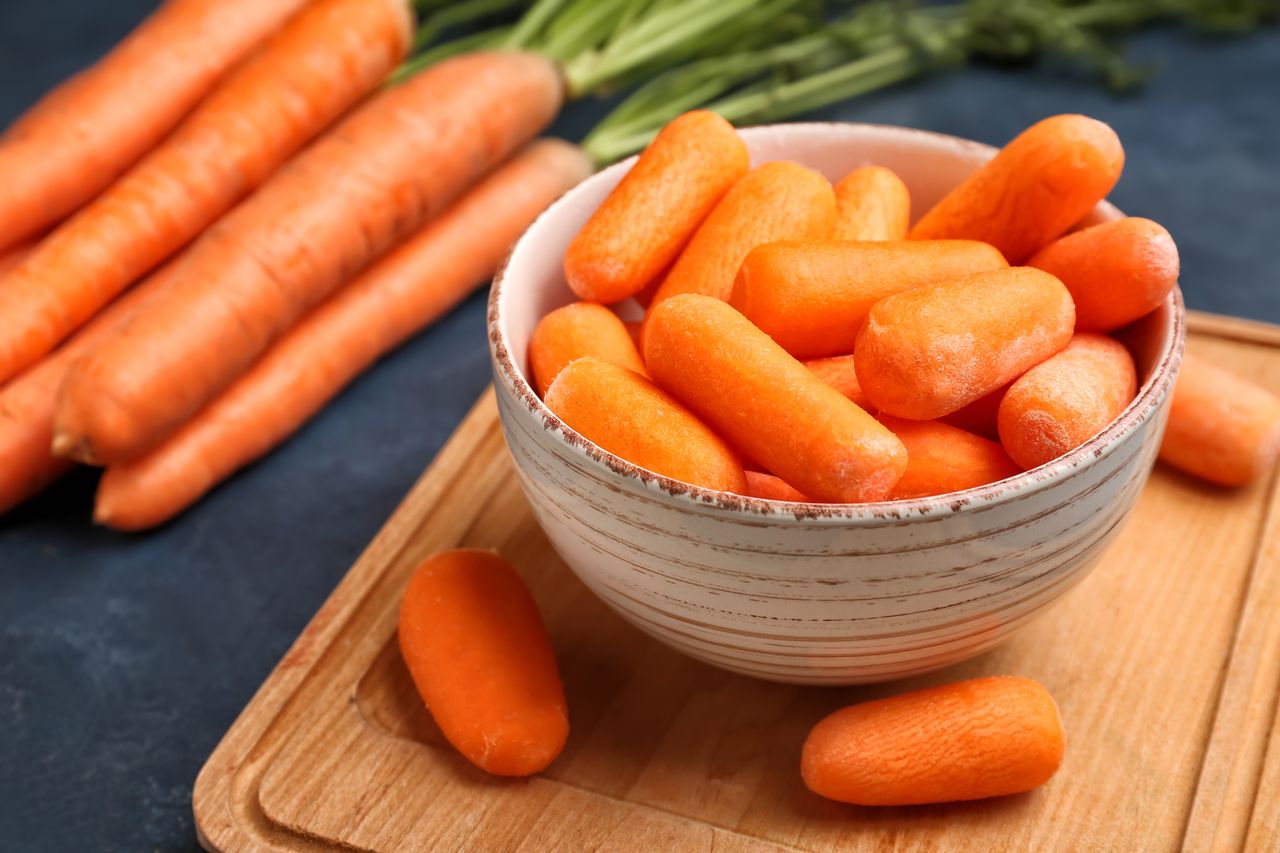According to me Baby carrots are a popular snack and vegetable that are often consumed raw or lightly cooked. They are relatively low in carbohydrates compared to many other foods.Wondering how many carbs are in baby carrots? Look no further! In this article, we’ll break down the carb count and nutritional benefits of this crunchy snack.
Introduction:
Known for their sweet flavour and crunchy texture, carrots🥕 are a well-liked vegetable. They are also a fantastic source of nourishment, brimming with the vitamins and minerals required for a balanced diet. In recent years, baby carrots in particular have gained popularity as a snack because of how convenient and bite-sized they are. But do tiny carrots🥕 fit into a low-carb diet and how many carbohydrates do they contain? These and other inquiries will be addressed in this post so that you may decide whether to eat baby carrots🥕.
How Many Carbs in Baby Carrots : watching this video
How Many Carbs in Baby Carrots: The Numbers
So how many carbohydrates are there in baby carrots🥕? The serving size determines the response. According to the USDA, there are around 7 grammes of carbohydrates in a 3-ounce serving of baby carrots🥕, or about 9 carrots🥕. There are 5 grammes of sugar and 2 grammes of fibre in this.
Although 7 grammes of carbohydrates for a tiny portion may seem like a lot, it’s vital to keep in mind that not all carbohydrates are made equal. Baby carrot fibre is a form of carbohydrate that your body cannot digest, thus it does not count towards your total intake of carbohydrates. Also, baby carrots’🥕 natural sugars are far healthier than the added sugars found in many processed foods.

Nutritional Benefits of Baby Carrots
Baby carrots🥕 provide a lot of fibre, are low in calories, and are a fantastic source of vitamins and minerals. Here are just a few of this crunchy snack’s health advantages:
1)Baby carrots🥕 are a great source of vitamin A, which is necessary for strong immune system, healthy vision, and healthy skin.
2)Baby carrots🥕 are a good source of vitamin K, which is important for healthy blood clotting and bones.
3)Baby carrots🥕 are rich in potassium, a crucial mineral that aids in controlling blood pressure and preserving a healthy fluid balance in the body.
4)Carrots🥕 are a good source of antioxidants, which aid in preventing cell oxidation brought on by free radicals.
FAQs:
Yes! The low calorie and high fibre content of baby carrots🥕 can help you feel full and satisfied for longer. Also, they are a fantastic swap for high-calorie, high-fat snacks like chips or candies.
You can eat too much of any food, but it’s doubtful that you’ll overdo it with baby carrots🥕 because they have so few calories. Your skin may get slightly yellowish-orange if you consume a lot of carrots or other vegetables with an orange tint. If you cut back on these foods, this is harmless and will go away.
Baby carrots🥕 are just young, little carrots🥕 that have been reduced in size. They may even be more nutrient-dense than normal carrots.
Carbohydrate content in baby carrots🥕 is comparatively low. One medium-sized baby carrot🥕 has only 0.7 grams of net carbohydrates on average.
Yes, while on a ketogenic diet, you can occasionally indulge in small carrots🥕. They are a good choice for keto-friendly snacks because they are low in carbohydrates.
Baby carrots’🥕 low calorie and carbohydrate content makes them advantageous for weight loss. Sajaba, the high fiber content of these foods can aid in encouraging feelings of fullness and lowering daily calorie intake.
It’s true that baby carrots🥕 are a great source of many vitamins and minerals. They contain potassium, vitamin K, and vitamin A, which are crucial for blood coagulation, heart health, and vision.
Baby carrots do not contain a lot of sugar. One medium-sized baby carrot🥕 has just 0.5 grams of sugar on average.
Additional FAQs of How Many Carbs in Baby Carrots
Low calorie foods include baby carrots🥕. A medium-sized baby carrot has about 4 calories in it.
Yes, people with diabetes can enjoy baby carrots🥕 as a healthful snack🥪. They have a modest amount of carbohydrates and a low glycemic index, which can help control blood sugar levels. But it’s important to watch your portions and eat a variety of foods.
There is no recorded history of baby carrots🥕 causing allergies. Individual sensitivities can, however, differ. It is advised to speak with a healthcare provider if you have any questions or develop allergic reactions after eating baby carrots🥕.
The nutritional profiles of baby and ordinary carrots🥕 are comparable. Baby carrots, on the other hand, are typically more convenient for snacking🥪 and cooking because of their smaller size. Regular carrots🥕 may include a little more fiber.
Baby carrots🥕 can be a part of a low-carb diet, yes. They can be used as a healthy snack or added to meals because they are relatively low in carbs.
Your unique dietary objectives and carbohydrate tolerance will determine how many baby carrots🥕 you can consume without going over your daily carbohydrate allowance. To establish the right portion size for your needs, it is advised to speak with a qualified dietitian or healthcare expert.
Baby carrots🥕 are generally safe to eat and do not have any serious adverse effects. But consuming too much of any food can cause stomach pain. Baby carrots should be included in a balanced diet, consumed in moderation, and in accordance with your body’s needs.
Conclusion:
In spite of So, how many carbs are in baby carrots? A 3-ounce serving contains approximately 7 grams of carbs, including 2 grams of fiber and 5 grams of sugar. While this may seem like a lot, the fiber in baby carrots is a healthy type of carbohydrate that doesn’t contribute to your overall carb count. Plus, baby carrots are packed with vitamins and minerals that are essential for a healthy diet. So, the next time you’re lookin healthy.
Thank you for visiting our site : carrotguides.com